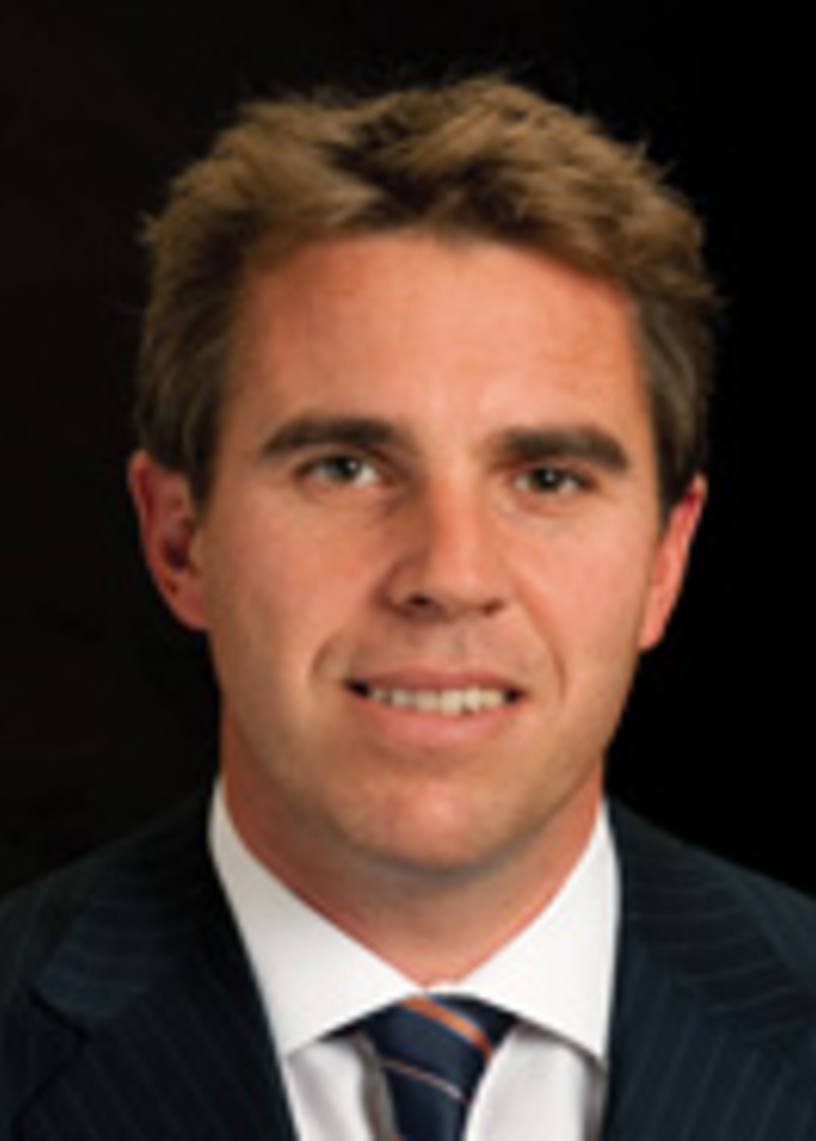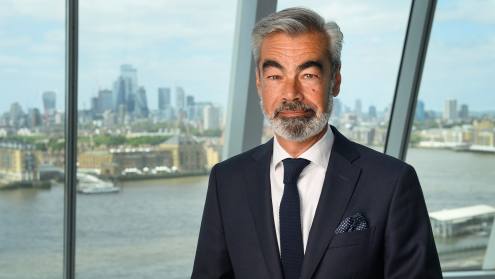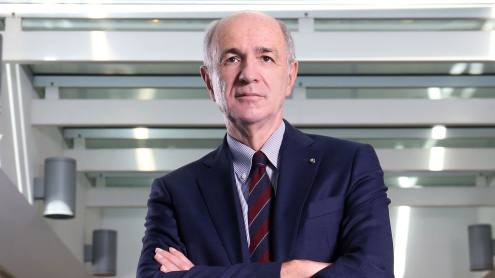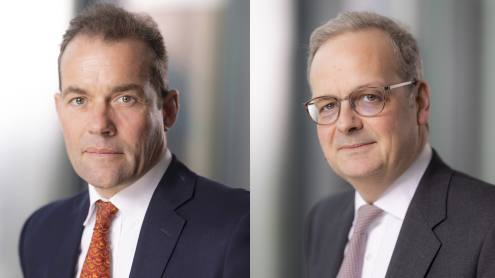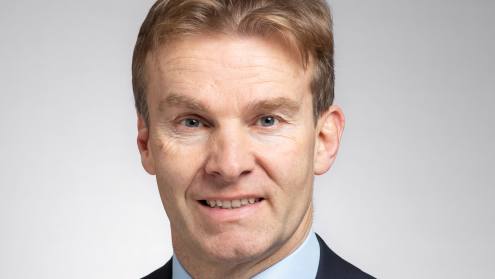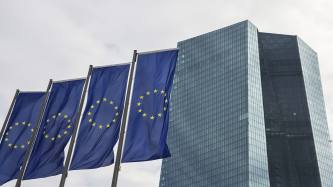With two highly prized UK corporate brokerships won in the first week of February, a lead role in British Virgin Islands incorporated company Justice Holdings' initial public offering (IPO) the same month and the status of sole bookrunner for mining company Aurubis's accelerated bookbuild in January, it is clear that Barclays Capital's (BarCap) aggressive expansion into European equity capital markets (ECMs) is bearing fruit.
This year's corporate brokerships were important wins. The first, Anglo-Australian mining giant BHP Billiton, saw BarCap unseat incumbent broker Bank of America Merrill Lynch (BAML). The second, International Airlines Group (the holding company created by the merger of British Airways and Spanish carrier Iberia) chose BarCap as its broker over BAML, UBS and Morgan Stanley, the advisors that helped to put the merger together.
The firm is a long way behind the banks at the top of the list (JPMorgan, UBS and BAML), but the latest appointments bring BarCap's broking wins to 11 since January 2010, the highest gain according to the corporate broking data provider Hemscott.
Gaining momentum
In broader ECM terms, BarCap has gained significant ground. According to data provider Dealogic, the bank languished at 21 in the equity and equity-linked league tables in 2009, with 0.6% market share; in 2010, it leapt to ninth and 2.6% market share; year-to-date, the bank is ranked at eight, with a market share of 6.2%.
Success was not a given. The acquisition of Lehman Brothers' US business may have given BarCap an instant leg-up in the Americas (where the bank sits at three in ECM and two for IPOs, year-to-date), but building in Europe, the Middle East and Africa (EMEA) and Asia had to be an organic process. Not since NatWest or Deutsche Bank first set out to create investment banking operations in the mid-1990s has another European firm had such ambitious plans.
"This is not a project for the faint-hearted, and no firm had successfully pulled it off on this sort of scale before," says Sam Dean, who left Deutsche Bank in May 2009 to join BarCap in September as co-head of ECM.
Mr Dean was hired to complete the build-out of a global ECM franchise, but joining in the early stages of the process required a leap of faith. For one thing, Barclays Capital did not have a history in ECM. For another, several of the other key personnel that would complete the investment bank's senior mergers-and-acquisitions (M&A) and equity teams – crucial for the creation of the kind of integrated investment bank envisaged – had yet to be appointed.
The existing senior management team was, however, a compelling part of the proposition. Group chief executive Bob Diamond and BarCap co-heads Jerry Del Missier and Rich Ricci, for example, have all been at the firm since it began as a fixed-income-focused house. They have been key in transforming BarCap and have board-level buy-in for every step – meaning that the build-out would be given the time it needed to bed in.
“Everyone was excited by the challenges and opportunities of building a new platform, but critical to my personal decision was the credibility and quality of the management team,” says Mr Dean. “They had a proven track record of executing highly strategic moves, and we all shared the same philosophy about the sort of integrated business we wanted to build.”
Top-level hires
That kind of integration has been delivered – as has the calibre of the bankers they promised. M&A banker Tom King, for example, joined BarCap after Mr Dean as head of investment banking for EMEA. Bringing two decades of experience at Citigroup, Mr King helped BarCap turn an existing lending relationship with BHP Billiton (insiders say BHP was impressed with the way BarCap put together its part of the $40bn acquisition financing package for last year's failed Potash bid) into a prestigious corporate broking mandate.
“This is the most joined-up firm that I've worked at,” says Mr Dean. “That was obvious from my earliest meetings with the bank.”
An integrated, well-oiled machine is no guarantee that all bits of the business will succeed with every client. Being a trusted M&A advisor to a UK blue-chip does not guarantee that it will select you as its corporate broker – as BAML, UBS and Morgan Stanley discovered with IAG. Moreover, being the corporate broker only guarantees work on rights issues (and BarCap missed that wave in 2009 when it was building), not advisory or lending business. But it helps.
As does the buy-in at board level, which gave BarCap ECM bankers crucial breathing time to get the offering right. According to Mr Dean, making sure that development was aligned was a key priority; for example, ensuring that the research platform was in place to support the build-out of the cash equities business. In EMEA, that meant growing coverage from zero to the 425 stocks it covers now.
“We had to take the right steps at the right time.” says Mr Dean. “There was no point in having senior bankers in place if the core research platform wasn't there.”
BarCap also had to persuade clients that the bank had what it takes to compete with the big ECM houses. The basis of that was the right people; and there have been several coups, not least Mr Dean and Mr King. Other key hires include Jim Renwick from UBS, now chairman of corporate broking and head of UK ECM; Howard Spooner, former managing director of equity trading focused on technology, media and telecoms at Goldman Sachs; and Ghislain de Brondeau, who quit as co-head of global syndicate at SG CIB to join BarCap as head of French ECM and co-head of southern Europe.
Mr Dean says BarCap's global recruitment effort is all but complete. “The US and EMEA are basically finished, and Asia-Pacific is almost there,” he says. “In terms of hiring, we are more than 95% done.”
Building trust
Before it began pitching for business, BarCap spent time with potential clients, telling them about what it was building – and asking clients what they wanted from an ECM business. Then, it began with small deals or took junior roles on bigger transactions; it managed client expectations in terms of what business they were ready to do.
“We had to get it right. When we began pitching for business, we had to be in a position to deliver,” says Mr Dean.
An early sign that its equity capabilities were coming together was BarCap’s first block trade as sole bookrunner of €54m of stock in German wind company Nordex for Capital Management Partners in April last year. This was followed in May with another sole bookrunner role on a ₤58m ($94) block for IG Group, and in June with another, selling ₤335m of stock for Intercontinental Hotels – the bank's first for a FTSE 100 company.
“[A block trade] is on risk, so you lose money if you get it wrong. And it all happens very fast; you have to have seamless coordination between investment banking, ECM and [cash] equities,” says Mr Dean. “In a way, it's the purest test of your skills. Nordex wasn't a huge deal, and maybe at another bank it wouldn't have been noticed; but when you are building a new business, you really celebrate these successes.”
Winning a three-pronged role as lender, advisor and underwriter for insurance vehicle Resolution's £2.4bn acquisition of the UK life insurance business of Axa in June 2010 was another big moment; it later resulted in BarCap's appointment as corporate broker.
“Winning a joint book role on the Resolution deal really felt like we'd made it. It was a great outcome for the client, a great outcome for investors, and a great franchise win for our EMEA investment banking franchise. We had demonstrated that the firm was completely coordinated across debt, equity and advisory,” says Mr Dean.
In the fourth quarter of last year, he says the franchise really began to tick. In October, the bank picked up its first FTSE 100 corporate broking client, National Grid (followed shortly afterwards by Resolution), and Enel’s €2.5bn IPO. Then it won a joint bookrunner role on Russian Lukoil's $1.5bn convertible bond in December. January saw BarCap performing a sole bookrunner role on German copper smelter Aurubis's €170m accelerated book build, joint book on Yule Catto’s £225m rights issue, and joint global coordinator and joint bookrunner on Piraeus Bank’s €807m rights issue. Then came the BHP and IAG corporate brokerships.
Growing opportunities
If it has been a good start to the year, the outlook is even better, says Mr Dean, who thinks it is going to “rain” ECM business. Activity is driven by several different trends, but they rarely come all at once – until now. A pick-up in M&A will probably drive equity financing; privatisations are expected almost everywhere as governments either raise money or exit crisis investments; emerging markets are booming; private equity companies are lining up IPOs; and the post-crisis hangover means that banks are still raising capital. Mr Dean thinks there could be 20 block trades out of the Iberian peninsula alone this year.
“We are facing unique conditions. I've never known a market where all the drivers for activity are present at once,” he says.
And the timing could not be better, he adds. BarCap built itself up during a period of huge market dislocation, giving it a unique window of opportunity to hire senior bankers. On the downside, volatile markets do not make for an easy execution environment – as last year's raft of pulled and poorly performing IPOs testify. “If the markets had been busy when we were still building the business, we could have been left behind. As it is, cancelled deals gave us an excuse to call clients and establish a new dialogue to help them.”
While the bank missed out on the wave of rights issues in the midst of the crisis, the next bout of equity market activity looks likely to coincide with BarCap's platform hitting its stride.
Career history
2009 appointed co-head of equity capital markets and co-head of global finance, EMEA at Barclays Capital
2008 appointed co-global head of equity capital markets at Deutsche Bank
2006 appointed co-head EMEA equity capital markets and head of global equity syndicate
2005 appointed co-head of EMEA equity capital markets at Deutsche Bank
2001 joined Deutsche Bank as head of equity syndicate, EMEA in London
1998 joined Citigroup (Salomon Brothers) as head of equity syndicate, EMEA within the European equity capital markets team in London
1993 joined the equity capital markets team at Kleinwort Benson in London



